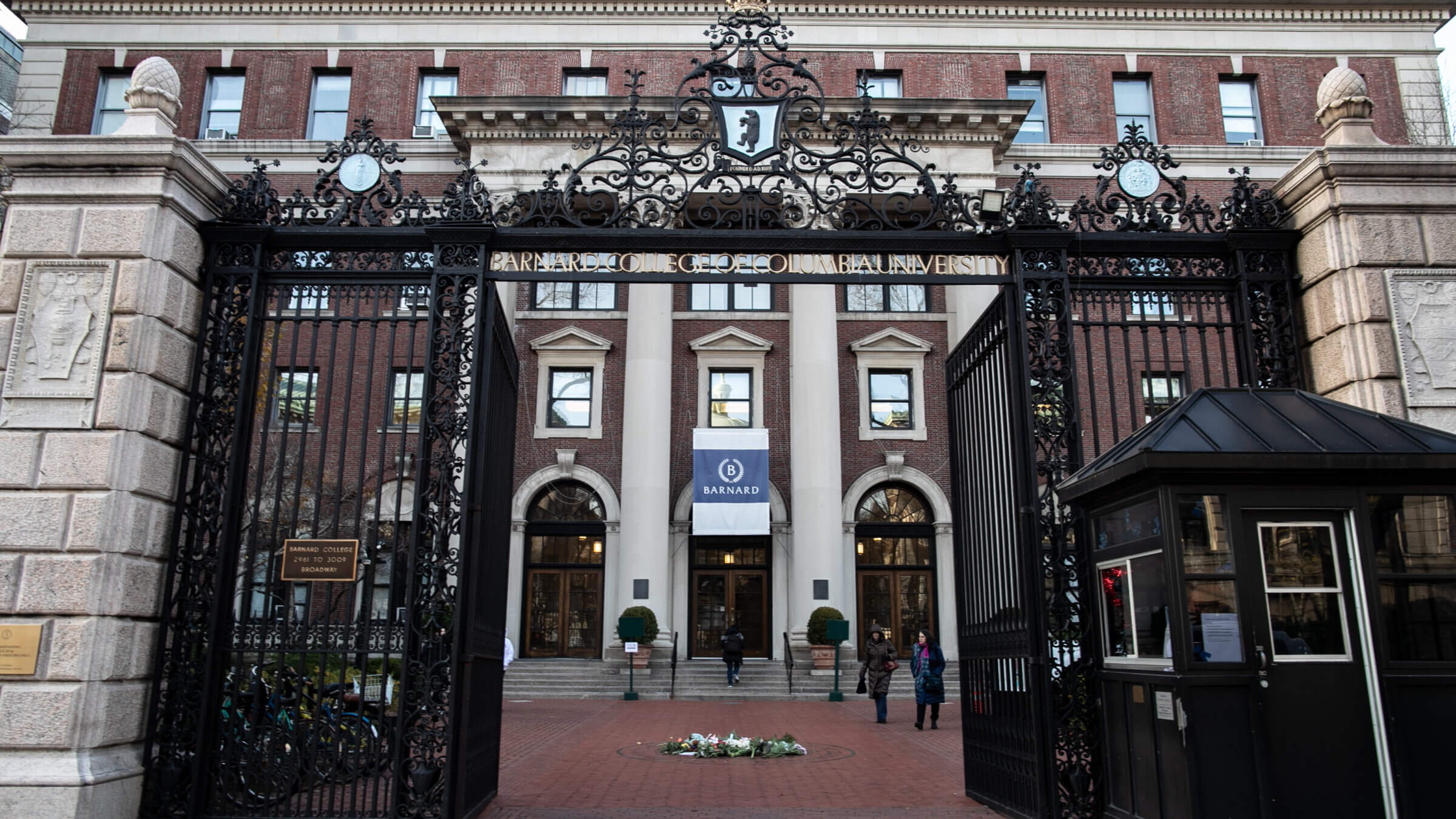In the wake of an antisemitism lawsuit, Barnard bans messaging on dorm doors
The college, which has been rocked by protests over the Israel-Hamas war, told students it’s trying make the campus feel more welcoming

The main entrance of Barnard College in 2019. Photo by Jeenah Moon/Getty Images
Barnard students may no longer display messages on their dorm doors, a response to the tense climate at the New York City college since the outbreak of the Israel-Hamas war.
Some students at Barnard and Columbia University, of which it is a part, have placed signs on their dormitory doors charging Israel with genocide in Gaza and of being an illegitimate state. Jewish students last week filed a lawsuit, accusing both schools of failing to protect students from “pervasive” antisemitism and anti-Zionism. “Anti-Zionism is not merely a political movement — although many try to disguise it as such — but is a direct attack against Israel as a Jewish collectivity,” the suit read.
Barnard officials, who sent an email to students about the new dorm door policy, said it’s intended to foster an atmosphere “where everyone feels welcome and safe.” “While many decorations and fixtures on doors serve as a means of helpful communication amongst peers, we are also aware that some may have the unintended effect of isolating those who have different views and beliefs,” read the email from Leslie Grinage, the college’s dean.
The policy went into effect at noon on Wednesday and the university said it would remove all messaging from doors Thursday, and that there could be exemptions for religious and other objects.
Barnard officials affirmed in an email that students could continue to affix mezuzahs to their doorposts.
Some of the most explosive protests on college campuses since Oct. 7, when Hamas attacked Israel, setting off the war, have taken place at Columbia and Barnard, on the city’s Upper West Side. Columbia has suspended chapters of two groups that organized the protests — Students for Justice in Palestine and Jewish Voice for Peace. The student groups and the New York Civil Liberties Union say the suspension violates the student members’ speech rights.
Similarly, some students have called the new door policy overreach. “Shameless repression of free speech,” Columbia’s SJP chapter wrote on Instagram.
But others are more accepting of the new rule. “I agree that students should have freedom of speech but I understand polarization can be harmful to students as well,” freshman Talia Spitz told New York’s ABC 7 news.
Attorney Marc Kasowitz, who represents some of the students who filed the antisemitism lawsuit, told the news channel that Barnard’s new door policy fails to address “systemic” antisemitism on the campus.
Barnard, which accepts only students who identify as women, has been a popular choice for Jews. According to Hillel, the national college Jewish organization, 28% of its 3,000 students are Jewish.
Barnard also runs joint degree programs with the Jewish Theological Seminary, the flagship training school for rabbis in the Conservative stream of Judaism.






















